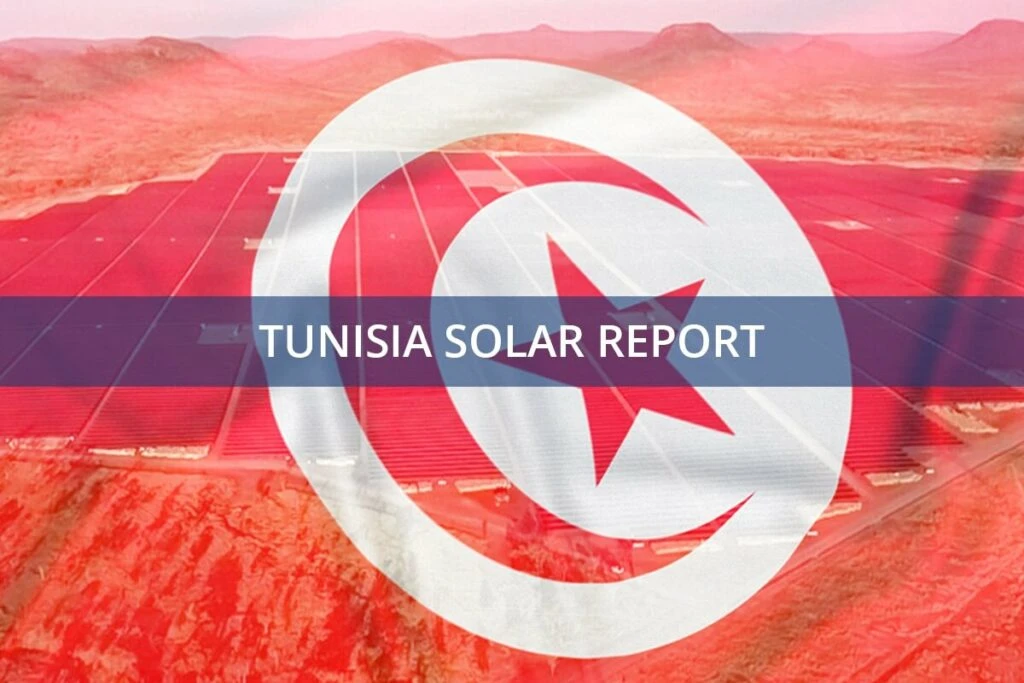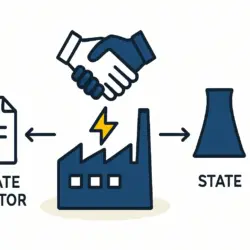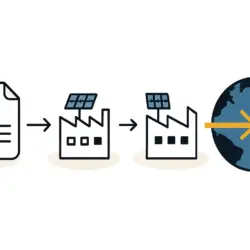Japan is financing two solar projects in Tunisia through its Joint Crediting Mechanism (JCM), a program designed to support clean energy initiatives in developing countries. The projects include a 2.1 MW solar plant for the El Mghira Industrial Park and a 1.2 MW solar array for the Monastir Industrial Park, marking another step in the growing energy partnership between the two nations.
Exploring Tunisia Solar Projects
Japan is funding two key solar projects in Tunisia under its Joint Crediting Mechanism (JCM)—a program designed to promote clean energy and reduce emissions in developing countries. The specific projects include a 2.1 MW solar plant for the El Mghira Industrial Park and a 1.2 MW solar array for the Monastir Industrial Park.
The 2.1 MW solar project in El Mghira will feature 4,005 solar panels and 21 inverters, generating an estimated 3,512 MWh annually to provide clean power to the industrial park.
The second project in Monastir will install 2,340 panels and 12 inverters, producing 1,976 MWh per year. Both projects are supported by the Japan International Cooperation Agency (JICA) and aim to enhance solar energy infrastructure in Tunisia. This cooperation is not new; Japan has previously contributed to financing solar power projects in other Tunisian governorates like Sidi Bouzid and Bèja.
This partnership is set to deepen, with announcements indicating that private Japanese companies are expected to enter Tunisia’s solar sector, signaling a shift from public funding to broader private investment. These initiatives support a country that already has a solar module manufacturing capacity exceeding 500 MW per year, a testament to its growing role in the solar supply chain. The entire Manufacturing Process is a complex operation that Tunisia is increasingly mastering.
Japan’s Joint Crediting Mechanism (JCM) and Tunisia solar projects
The Joint Crediting Mechanism (JCM) is a cornerstone of Japan’s international strategy to combat climate change. This initiative focuses on reducing greenhouse gas emissions in partner countries by providing crucial financial and technical support for renewable energy and energy efficiency projects.
Since its inception, the JCM has facilitated numerous projects globally, contributing significantly to global emission reduction efforts. Managed by Japan’s Ministry of the Environment and the Ministry of Economy, Trade, and Industry, the mechanism operates by funding the deployment of advanced low-carbon technologies.
By doing so, it helps partner nations reduce their reliance on fossil fuels. Critically, the JCM is designed to create shared value; the resulting emissions reductions are counted toward the climate targets of both Japan and the host country, fostering a collaborative approach to achieving the goals of the Paris Agreement.
Unlocking Tunisia’s Solar Energy Potential with Tunisia solar projects
Tunisia, with its high solar yield and vast desert areas, is an ideal location for solar energy development. The country enjoys an annual insolation rate of 1,800 kWh/m², making it one of the sunniest places on Earth. Tapping into this potential, the government has set an ambitious target to produce 4,500 megawatts from renewable sources by 2030.
The country has already made significant progress. After reaching 640 megawatts of solar capacity in 2021, this growth trajectory is set to continue. A key advantage for Tunisia is its domestic solar module manufacturing capacity, which exceeds 500 MW annually. This local production capability, which can be compared with other nations in the Global Solar Report, reduces reliance on imports and strengthens the national economy. Understanding the Basics of Manufacturing highlights the technical expertise required to sustain such an industry.
The projects funded by Japan in El Mghira and Monastir will have a tangible impact, helping Tunisia reduce its carbon footprint while providing clean, reliable energy to its vital industrial sectors. This partnership exemplifies how international cooperation can accelerate the global transition to sustainable energy.
To learn more about the intricacies of solar production, from the Raw Materials to the final assembly, consider enrolling in our Free E-Course.



